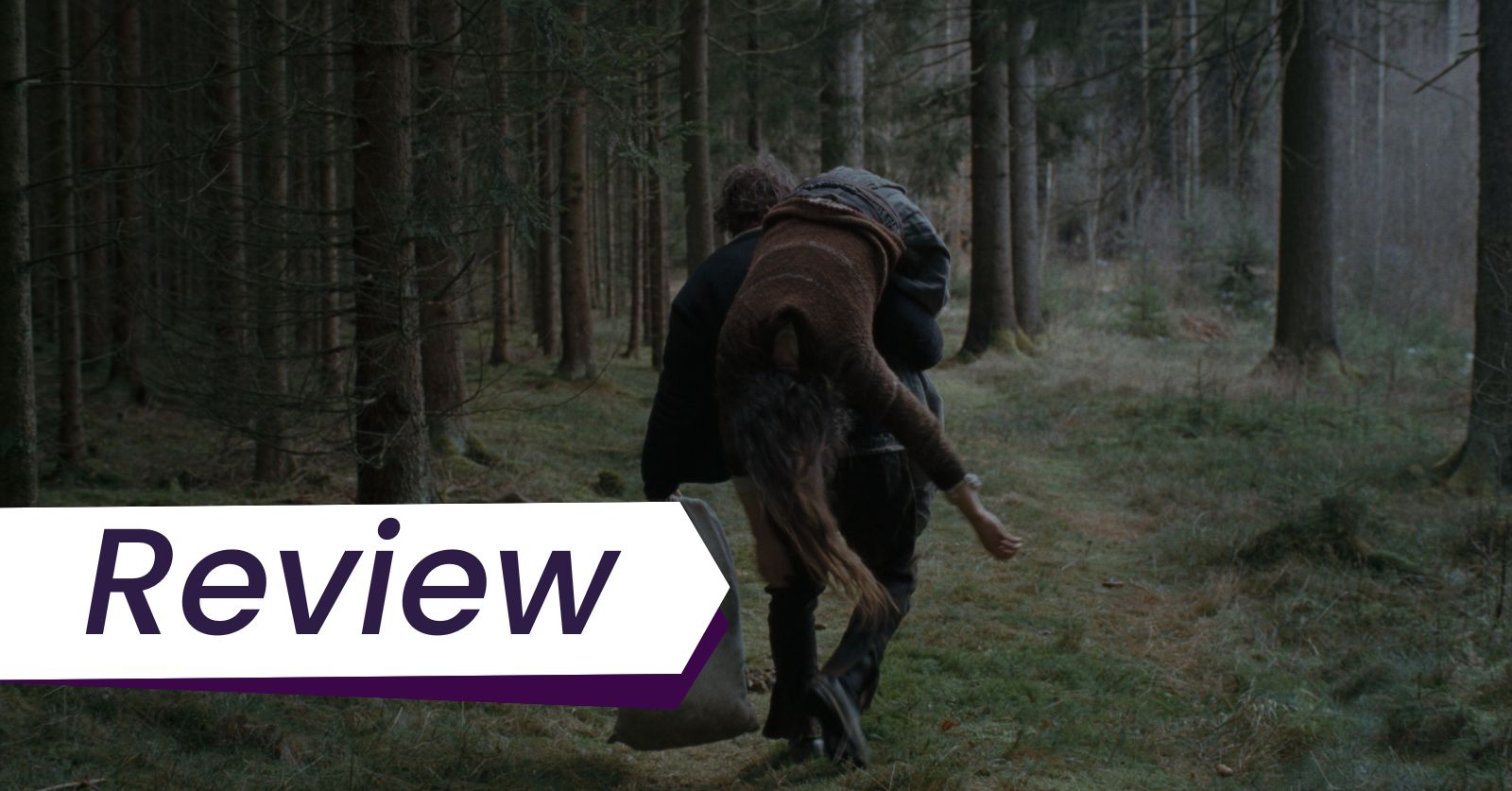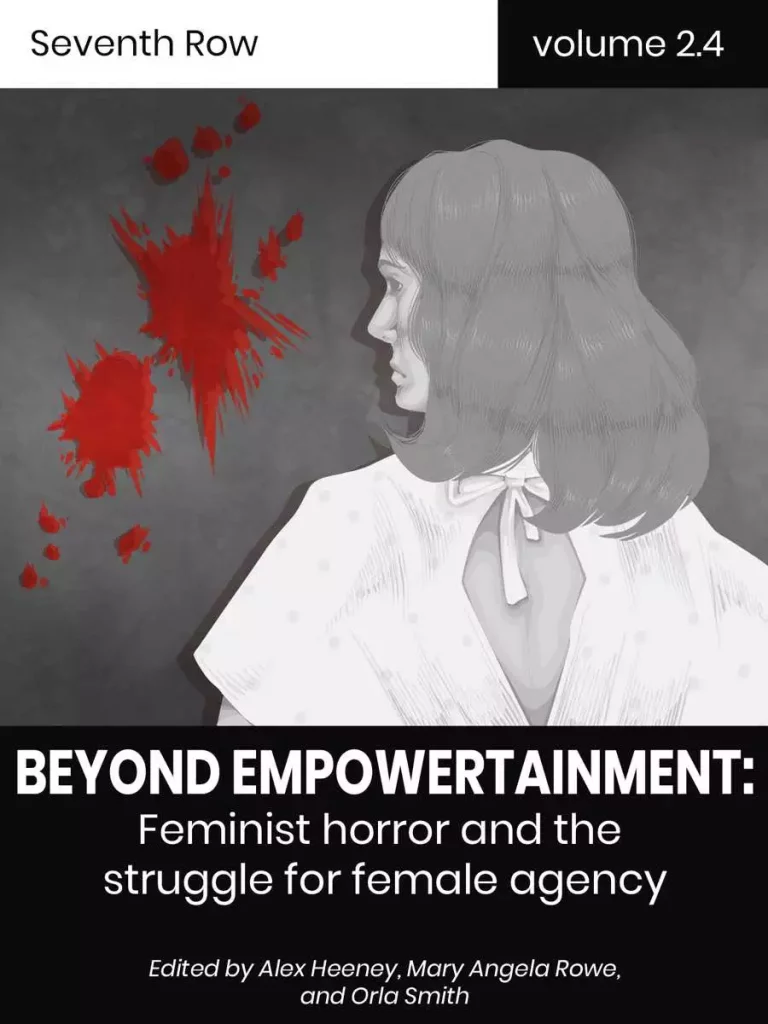Veronika Franz and Severin Fiala’s harrowing new drama makes their previous chillers, Goodnight Mommy and The Lodge, look like episodes of Mister Rogers’ Neighborhood.
Discover more horror films about women in search of their agency amidst patriarchal forces with our ebook Beyond Empowertainment: Feminist Horror and The Struggle For Female Agency”, available here.

Discover one film you didn’t know you needed:
Not in the zeitgeist. Not pushed by streamers.
But still easy to find — and worth sitting with.
And a guide to help you do just that.
As a professional horror movie watcher, I used to pride myself on not being one of those people who couldn’t shake what I saw on the big screen. Nothing I’ve reviewed has ever kept me up at night. And then I watched The Devil’s Bath, the third film from Austrian directing duo Veronika Franz and Severin Fiala.
Although it’s streaming on Shudder, The Devil’s Bath is more historical drama than horror film — and all the scarier for it. God and Satan are omnipresent, but this is no supernatural flick; body parts get lopped off, but this isn’t splatterpunk. This soul-sucking script painstakingly details one woman’s losing battle with societal expectations and depression in 18th-century Austria.
The film opens on a woman who, after commiting infanticide in spectacular fashion, confesses her crime to the authorities. Cut to our protagonist, Agnes (Anja Plaschg), as she celebrates her wedding to a man in a neighbouring village. Agnes is nervous to leave behind everything she knows, but she’s also a nature-loving dreamer excited for motherhood. Unfortunately, her husband, Wolf (David Scheid), seems to prefer the affections of other men, and her mother-in-law constantly criticizes her.
Failing at womanhood in the film The Devil’s Bath
By the standards of her time, Agnes is failing at womanhood, and she can’t seem to do anything to right the ship. Isolated in an unfamiliar town with no allies, she has no resources to improve her situation, nor any outlet for her increasing misery. She is stuck, doomed to feel like a failure, and her religious devotion only intensifies her perfectionistic anguish. When she stumbles on the execution site for the murderess from the film’s opening, Agnes uncovers a sinister loophole. If she commits murder, she can seek death while still being absolved of her sins.
In a way, this shattering film is Ira Glass’s fault. Franz and Fiala say they learned about this dark historical practice, dubbed suicide by proxy, from an episode of This American Life. It’s consummate subject matter for the directing duo, who love to put kids and maternal figures in peril. Their first film, Goodnight Mommy, is a twisted tale of mother-child torture. Their second film, The Lodge, dwells on religious themes, opens with a mother’s suicide, and follows a young wife-to-be through her own psychological demise.
Get our ebook Beyond Empowertainment, which features reviews and interviews about horror films in which women struggle against external patriarchal forces and internal demons.
The Devil’s Bath is a uniquely excruciating, visually exquisite meditation on depression and human brutality. To quote the credits, this movie was “shot on glorious 35mm” by cinematographer Martin Gschlacht and every image is gorgeous. Even the ones you can’t bring yourself to look at. Franz and Fiala pack their frames with lush moss, pitch-black nights, and dark red blood, evoking the beauty and barbarism of nature. Plaschg, who gives a truly incredible lead performance as Agnes descends into insanity, also composed the haunting score. The special effects team deserves a shout-out for lots of impressive — and seriously gnarly — prosthetics.
A fate I wouldn’t wish on even the most odious fictional character
In these picturesque forest villages, people and humans alike are terrorized by a society hundreds of years away from knowing better. You will feel grateful for modern medicine when you see what the village barber tries to do to cure Agnes’ “melancholy.” Prepare to get evangelical about women’s rights after you see how quickly a mismatched marriage could destroy a woman’s life.
I wouldn’t wish Agnes’ fate on even the most odious fictional character — I wouldn’t even wish it on a gnat or a parasite. As a result, I sort of wouldn’t wish this viewing experience on anyone. If you or someone you love struggles with their mental health, this very well may not be the movie for you. If you seek catharsis in depictions of other people’s struggles, know that this one is especially tough to weather.
The Devil’s Bath showcases two macabre filmmakers at the very top of their game. It’s an artistic feat, an urgent treatise on mental health and misogyny, and an eye-popping triumph of special effects. But it is also a protracted exercise in dread, as you spend the better part of two hours wondering not if, but when, its sympathetic lead will finally execute her own demise.
Related reading/listening to our review of Veronika Franz and Severin Fiala’s The Devil’s Bath
More horror about patriarchal religion: Read an excerpt from our interview with Rose Glass on her first film, Saint Maud. The full interview is available in the ebook Beyond Empowertainment: Feminist Horror and The Struggle for Female Agency. Inside the ebook, you’ll also find a case study on Joachim Trier’s Thelma. The film is about an evangelical Christian girl with special powers. She struggles to control them when her internalized homophobia clashes with her attraction to another woman.
More women-centred horror/genre films. Read Lena Wilson’s review of Love Lies Bleeding starring Kristen Stewart. Listen to Lena on the podcast where she programmed Jennifer’s Body alongside Sciamma’s Water Lilies.
Get our ebook Beyond Empowertainment: Feminist Horror and The Struggle for Female Agency

Discover a group of psychologically complex horror films about women coping with patriarchy in extreme circumstances. Essays reveal the films’ themes and critically analyze how the films make you feel the way they do. Interviews with the filmmakers’ reveal aspects of the filmmaking you didn’t even know you wanted to be thinking about.

